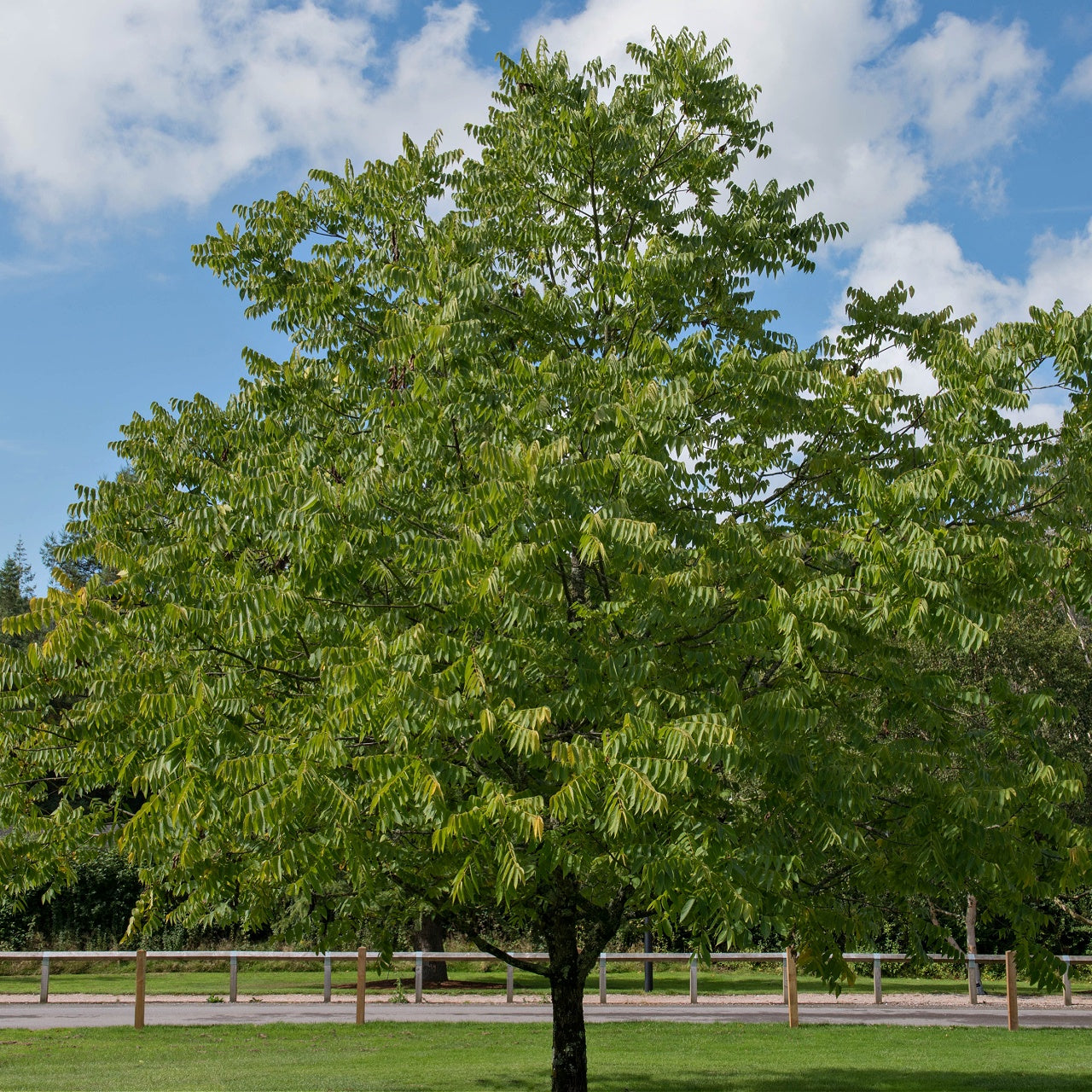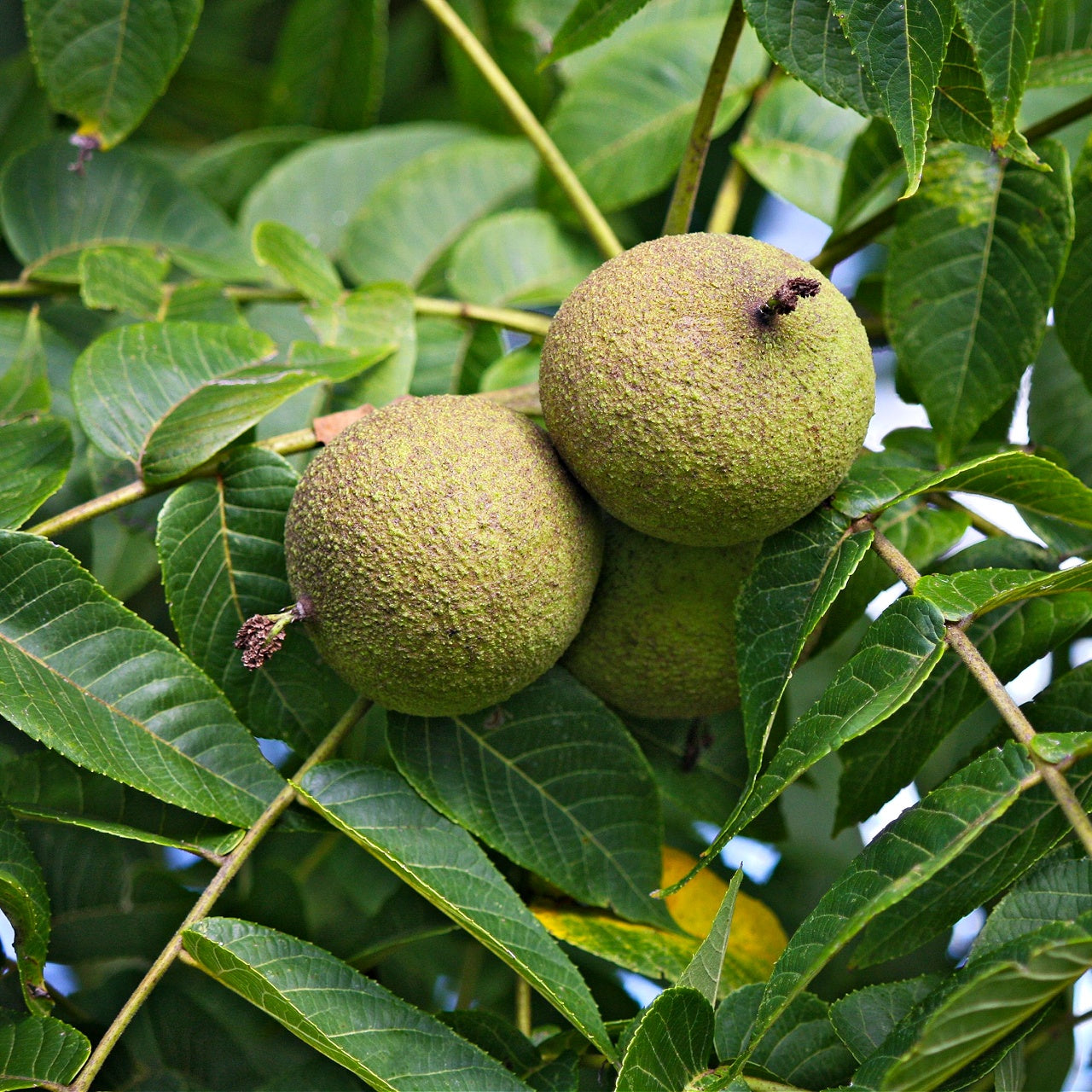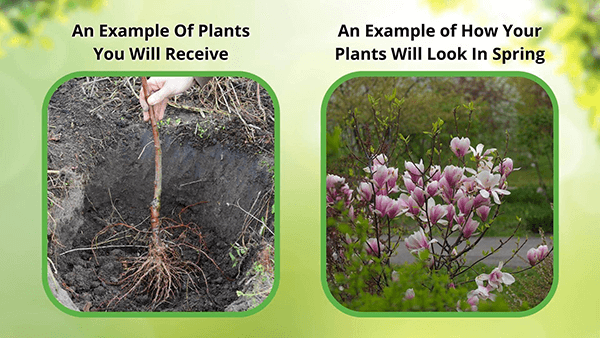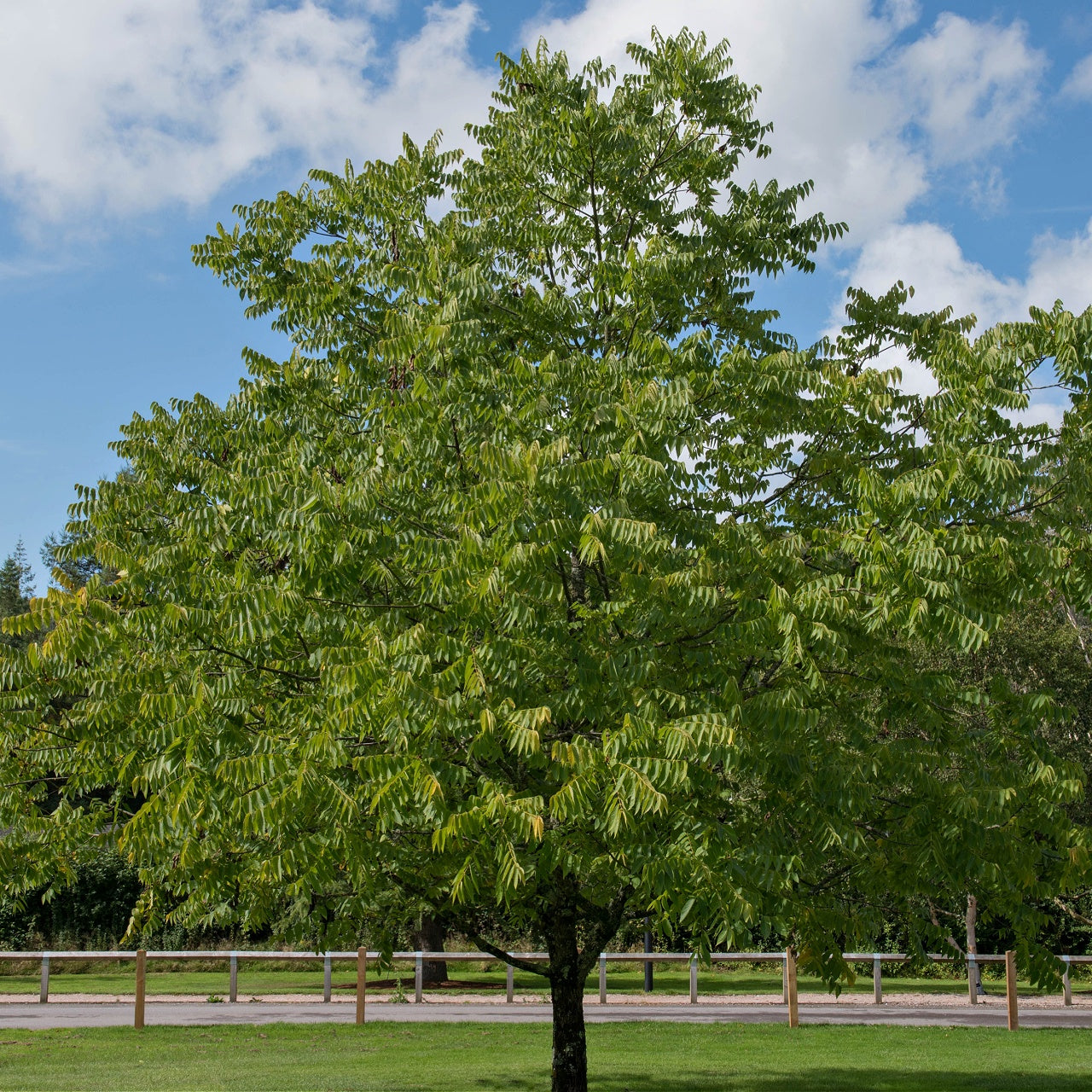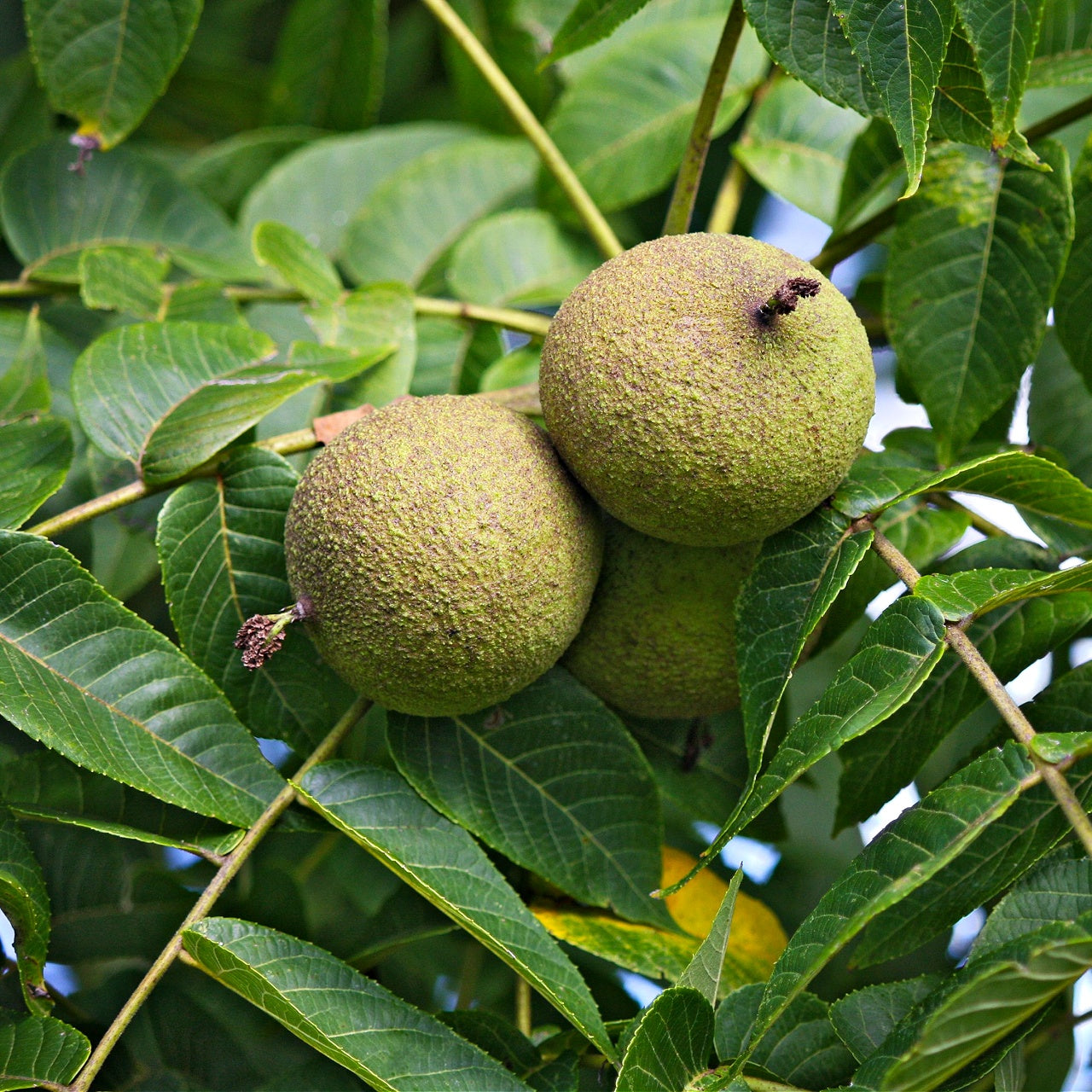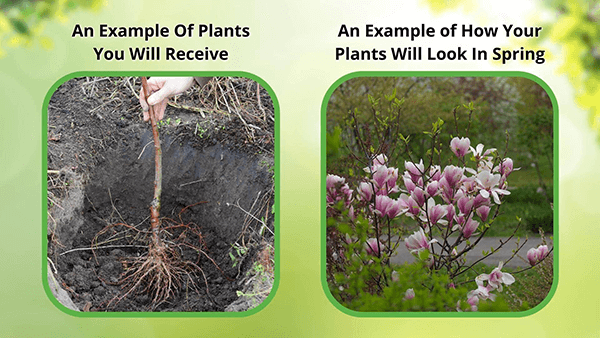Black Walnut Tree
This plant ships:
November 2025Couldn't load pickup availability
We do not ship this plant to the following states:
MI. MO. NE. OK. MS. OR. OH. AR. AZ. KS. IN. VA. WA. TX.CA. ILExposure
Full sun preferredHeight at Maturity
50–75 ft tall, 50–60 ft wideUsage
FruitingShipped As
bare-rootShips
Ships Fall 2025Planting Zones
4-9Buy Black Walnut Trees Online
Blooming time for black walnut trees typically falls in the latter half of spring, around April or May. As the blooms develop along the branches, they trail behind the growing leaves. They resemble little cacti, and when they reach a certain length, they bend downward. Catkin, the male flower, is a cluster of little green florets, and the blooms themselves are delicate. Groups of little, greenish-yellow blooms represent the female flowers.
Attract Wildlife With Black Walnut Trees
Despite their pulpy exterior and tough shell around the kernels, the nuts that fall from black walnut trees attract a lot of squirrels, raccoons, turkeys, and bears. These walnuts are an essential source of nutrition for many animals that hibernate because they include protein, carbohydrates, and fat. Various birds prefer these trees due to the cavities they provide for nesting. These birds range from bluebirds to wrens to chickadees and many others. Songbirds especially like these trees because more than 23 moth species use them for shelter (which the birds feast on).
Enrich Soil
Black walnut trees release a toxin called juglone into the soil. Although this chemical is present throughout the tree, it is most abundant in the roots, nut hulls, and buds. Not long after leaves fall to the ground, their juglone concentrations seep into the earth. This improved soil quality helps with weed prevention and stops the growth of other invasive plants.
Use Black Walnut Trees for Air Purification
The capacity of black walnut trees to absorb carbon dioxide and release oxygen via photosynthesis makes them excellent air purifiers. Their thick foliage and wide canopies let them exchange gases more easily, which improves the air around them. As a bonus, black walnut trees can absorb airborne contaminants like particulate matter and volatile organic compounds by trapping them on their leaves. This improved air quality benefits not only the trees and surrounding plants, but also the animals that use them for nesting and shelter.
Share
